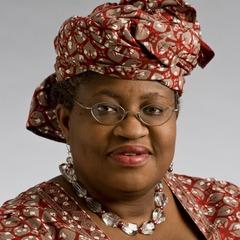The African Union has disqualified Dr Ngozi Okonjo-Iweala from vying for the office of the Director General of the World Trade Organisation, Accord
The African Union has disqualified Dr Ngozi Okonjo-Iweala from vying for the office of the Director General of the World Trade Organisation,
According to SaharaReporters, in July 2019, the Executive Council of the AU invited member states to present nominations into the office of the DG of the WTO so that the AU would agree on a consensus candidature.
Nigeria initially nominated Fedrick Agah while Benin and Egypt fielded Messrs Eloi Laourou and Abdulhameed Mamdouh respectively. On June 4, 2020, Nigeria withdrew the nomination of Fedrick Agah and replaced him with Okonjo-Iweala.
However, in a document from the Office of the Legal Counsel of the African Union, Reference Number: BC/OLC/24/5056.20 dated June 15, 2020, the African Union says the nomination of Okonjo-Iweala into World Trade Organisation violates Rule (11), 1, 2 and 3, Rule 12 and Rule 15(3) of the rules of procedure of the committee on candidatures within the International System of the AU as well as Council’s Decisions Ex CI 1072 (XXXV), Ec CI Dec 1090 (XXXVI) and Assembly Dec 795 (XXXIII).
The AU says its Executive Council had endorsed the nominations of Fedrick Agah, Eloi Laourou and Abdulhameed Mamdouh before Nigeria sought to substitute its nomination. Meanwhile, the council’s endorsement was for the nominees in person and not for their countries.
In addition, the AU says Nigeria’s new nomination of Okonjo-Iweala did not meet the submission deadline and there are no more vacancies into, which Nigeria can make nomination. The AU wrote, “It is a recognised principle of international law that a sovereign state has the right to substitute and replace a nomination of its citizens as it may wish for a position.
“However, the sovereign right does not endow that state any right to change existing rules, relevant decisions of the Executive Council and decisions of the ther policy organs of the union. A decision of the Executive Council should only be changed by another decision of the council not by any member state and a decision of the Assembly should be changed by a decision of the Assembly not by a member state.”
